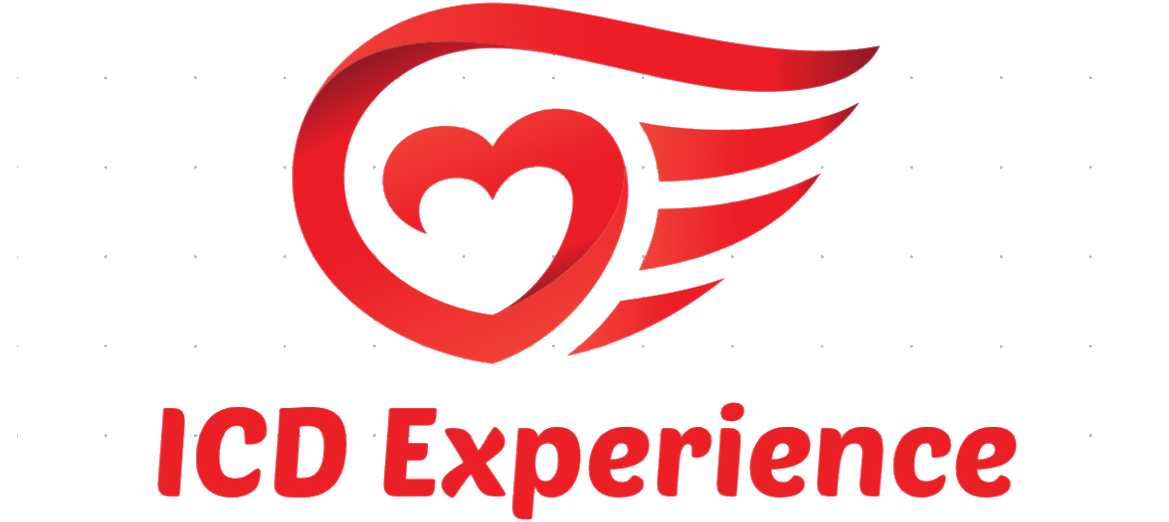Post-traumatic stress disorder (PTSD) is a severe mental health condition that can develop after experiencing or witnessing a traumatic event. For individuals with an implantable cardioverter-defibrillator (ICD), the device implantation and subsequent shocks can be profoundly traumatic. Understanding PTSD in the context of ICD implantation and addressing the associated trauma is crucial for both patients and healthcare providers. This guide aims to explore the complexities of PTSD in ICD patients, offering insights into recognizing symptoms, understanding the trauma’s impact, and providing strategies for effective management.
Understanding PTSD in ICD Patients
PTSD is characterized by a range of symptoms that can significantly impair daily functioning. These symptoms are generally grouped into four categories: intrusive memories, avoidance, negative changes in thinking and mood, and changes in physical and emotional reactions. For ICD patients, trauma can stem from various sources, including the initial diagnosis of a life-threatening heart condition, the surgical implantation of the ICD, and the shocks delivered by the device to correct arrhythmias. To learn more about the ICD device please see our article about living with an ICD.
Intrusive Memories and Avoidance
Intrusive memories are one of the hallmark symptoms of PTSD. ICD patients may experience flashbacks, nightmares, or distressing thoughts related to their heart condition or the shocks received. These intrusive memories can be triggered by various stimuli, such as seeing medical equipment, hearing specific sounds, or even experiencing minor heart palpitations. The constant fear of receiving another shock can perpetuate these intrusive memories, making it challenging for patients to find peace of mind.
Avoidance is another significant symptom of PTSD. ICD patients may go to great lengths to avoid situations, people, or activities that remind them of their trauma. For instance, they might avoid medical appointments, refrain from physical activities that could trigger their device, or isolate themselves from social interactions. This avoidance can lead to a decreased quality of life and hinder the individual’s ability to receive necessary medical care and support from loved ones.
Negative Changes in Thinking and Mood
Negative changes in thinking and mood are also common in PTSD. ICD patients may develop a persistent sense of fear, helplessness, or hopelessness. They might struggle with feelings of detachment from others and a diminished interest in activities they once enjoyed. This emotional numbness can exacerbate feelings of isolation and make it difficult for patients to engage in meaningful relationships and activities.
Changes in Physical and Emotional Reactions
Changes in physical and emotional reactions are often observed in PTSD patients. ICD patients may experience hyperarousal, characterized by heightened anxiety, irritability, and an exaggerated startle response. They might also suffer from sleep disturbances, including insomnia and frequent nightmares. These symptoms can lead to chronic fatigue and further impair the individual’s ability to cope with daily stressors.
The Impact of Trauma on ICD Patients
The trauma associated with ICD implantation and subsequent shocks can have far-reaching effects on a patient’s mental, emotional, and physical well-being. The constant fear of receiving a shock can create a state of hypervigilance, where the patient is always on edge, anticipating the next shock. This hypervigilance can interfere with daily activities, making it challenging to concentrate, work, or even enjoy leisure activities.
Physical Sensations and Emotional Consequences
The physical sensations associated with ICD shocks can also be traumatic. Patients often describe the shock as a sudden, painful jolt that is both physically and emotionally jarring. The anticipation of this pain can lead to a heightened state of anxiety, causing the patient to become overly cautious and avoid activities that might trigger the device. This can result in a sedentary lifestyle, negatively impacting the patient’s overall health and well-being.
Emotionally, the experience of living with an ICD can lead to feelings of vulnerability and a loss of control. Patients may struggle with the knowledge that their life depends on a device and that their heart condition could potentially threaten their life at any moment. This sense of vulnerability can lead to depression, anxiety, and a diminished sense of self-worth.
Social Consequences
Socially, the trauma associated with an ICD can lead to isolation and withdrawal. Patients may feel misunderstood or stigmatized by others who do not fully comprehend the severity of their condition or the impact of the device on their daily life. This social isolation can further exacerbate feelings of loneliness and depression, creating a vicious cycle that is difficult to break.
Recognizing the Symptoms of PTSD in ICD Patients
Recognizing the symptoms of PTSD in ICD patients is the first step toward effective treatment and management. Healthcare providers, family members, and patients themselves should be vigilant in identifying the signs of PTSD, which can often be subtle and easily overlooked. Some key symptoms to look out for include:
- Intrusive Thoughts and Memories: Patients may frequently think about their heart condition, the ICD implantation procedure, or the shocks they have received. These thoughts can be distressing and difficult to control.
- Nightmares and Flashbacks: Patients may experience vivid nightmares or flashbacks related to their trauma. These episodes can be triggered by specific stimuli, such as sounds, sights, or physical sensations.
- Avoidance Behavior: Patients may avoid activities, places, or people that remind them of their trauma. This avoidance can lead to a decreased quality of life and hinder their ability to receive necessary medical care.
- Negative Changes in Mood and Thinking: Patients may struggle with persistent feelings of fear, helplessness, or hopelessness. They might have difficulty experiencing positive emotions and may feel detached from others.
- Hyperarousal and Increased Anxiety: Patients may experience heightened anxiety, irritability, and an exaggerated startle response. They might also suffer from sleep disturbances, including insomnia and frequent nightmares.
- Physical Symptoms: Patients may experience physical symptoms such as chest pain, palpitations, or shortness of breath. These symptoms can be distressing and may lead to further anxiety and avoidance behavior.
Addressing Trauma in ICD Patients
Addressing the trauma associated with ICD implantation and shocks requires a comprehensive and multifaceted approach. This approach should involve healthcare providers, mental health professionals, and the patients themselves. Some key strategies for addressing trauma in ICD patients include:
Psychological Counseling
Psychological counseling can be highly beneficial for ICD patients experiencing PTSD. Cognitive-behavioral therapy (CBT) is particularly effective in helping patients identify and challenge negative thought patterns and develop healthy coping strategies. Trauma-focused therapies, such as Eye Movement Desensitization and Reprocessing (EMDR), can also help patients process and resolve traumatic memories.
Support Groups
Support groups can provide a valuable source of emotional support and understanding for ICD patients. These groups offer a safe space for patients to share their experiences, discuss their challenges, and receive encouragement from others who are going through similar struggles. Connecting with others who understand the unique challenges of living with an ICD can help reduce feelings of isolation and provide a sense of community.
Medication
In some cases, medication may be necessary to help manage the symptoms of PTSD. Antidepressants, such as selective serotonin reuptake inhibitors (SSRIs), can help alleviate symptoms of depression and anxiety. Benzodiazepines may be prescribed for short-term use to help manage acute anxiety and panic attacks. It is essential for patients to work closely with their healthcare provider to find the most appropriate medication regimen for their needs.
Education and Awareness
Educating patients about their heart condition, the purpose and function of the ICD, and the potential for PTSD can help demystify the experience and reduce anxiety. Providing patients with clear, accurate information can empower them to take an active role in their care and make informed decisions about their treatment. Healthcare providers should also be aware of the potential for PTSD in ICD patients and be proactive in screening for and addressing symptoms.
Relaxation Techniques
Relaxation techniques, such as deep breathing exercises, progressive muscle relaxation, and mindfulness meditation, can help ICD patients manage anxiety and stress. These techniques can be incorporated into the patient’s daily routine to promote relaxation and reduce hyperarousal. Regular practice of relaxation techniques can help patients develop a greater sense of control over their emotional and physical reactions.
Social Support
Building a strong support system is crucial for ICD patients experiencing PTSD. Family members, friends, and caregivers can play a vital role in providing emotional support and encouragement. Patients should be encouraged to communicate openly with their loved ones about their experiences and feelings. Healthcare providers can also help facilitate connections to community resources and support services.
Lifestyle Modifications
Making positive lifestyle changes can help ICD patients manage their symptoms and improve their overall quality of life. This may include adopting a healthy diet, getting regular exercise, ensuring adequate sleep, and avoiding substances such as alcohol and caffeine that can exacerbate anxiety. Patients should be encouraged to take a proactive approach to their health and well-being.
Conclusion
PTSD is a significant concern for ICD patients, with the potential to impact every aspect of their lives. Recognizing the symptoms of PTSD and understanding the unique challenges faced by ICD patients is crucial for effective treatment and management. By adopting a comprehensive approach that includes psychological counseling, support groups, medication, education, relaxation techniques, physical activity, social support, and lifestyle modifications, patients can learn to manage their symptoms and improve their quality of life. Healthcare providers, family members, and patients themselves must work together to address the trauma associated with ICD implantation and shocks, ensuring that patients receive the care and support they need to thrive.
For more information on managing life with an ICD, visit our General Advice sections. You can also find additional resources on PTSD at PTSD Alliance.












